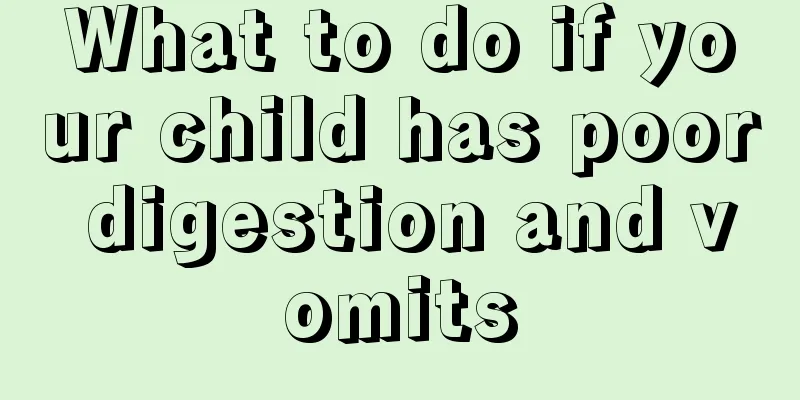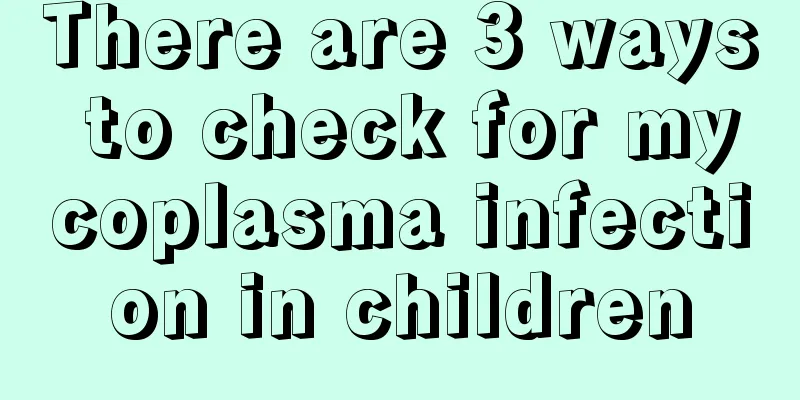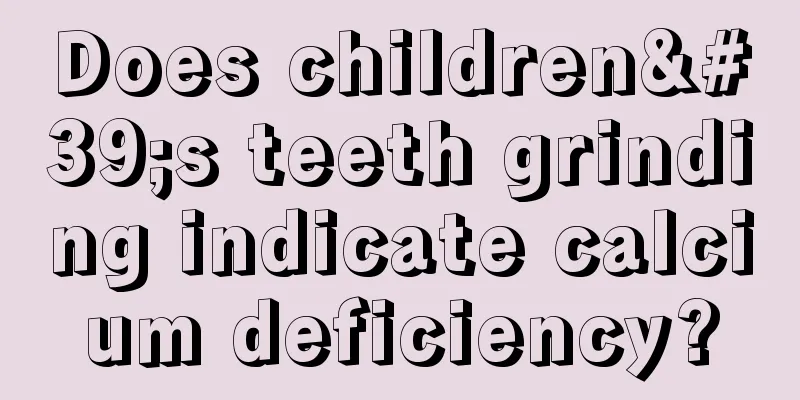What are the symptoms of teething in babies?

|
Some children may suddenly develop a high fever or cry incessantly when they are around five or six months old. At this time, we parents will be very confused because we are first-time parents and have no idea what the cause is. In fact, there is no need to worry. This is because the child is teething. Because we don’t understand, we will panic if we encounter such a situation. So we need to understand what are the symptoms of baby teething? Normally, babies experience no pain or symptoms when teething. When teeth begin to erupt, the amount of saliva increases, the baby drools, and likes to bite hard objects or put his fingers in his mouth to suck. Some babies also bite the nipple while feeding. To promote tooth eruption, give your baby a clean, smooth wooden stick to chew. A few children may experience sleep disturbance, low fever, etc. when they first start to teethe, but you don't need to worry too much about it. Ways to reduce the pain of teething in babies Drooling, inflamed gums, irritability, restlessness—these symptoms of teething are all too familiar to anyone who has cared for a baby. Teething is the process by which the first 20 teeth (called primary or deciduous teeth) emerge from the surface of the gums. The deciduous teeth are formed before the baby is born. Normally, they begin to erupt when the baby is about six or seven months old. The first tooth to erupt is usually the lower central incisor (front tooth). The word "normal" has a broad range, and like many things in nature, the same is true for the timing of baby teething - whether your baby's teeth appear at 2 months old or not until the 12th month, it's normal and you don't need to be surprised. Typically, teeth erupt in the following order: central incisors, located between the upper and lower jaws, emerge between 6 and 12 months of age; lateral incisors emerge between 9 and 13 months of age; canines (canine teeth) emerge between 16 and 22 months of age; first molars emerge between 13 and 19 months of age; and second molars emerge between 25 and 33 months of age. Most children will have all of their primary teeth by the age of three. The eruption, or "breaking through" of all primary teeth, is extremely painful for both the baby and the caregiver. When teeth come through the sensitive gums, it is very painful, and your baby is likely to be irritable and grumpy. But not all babies react to teething in the same way. Some babies may breeze through the teething period without even a cry; others make a big fuss with each new tooth. The length of time teeth eruption takes also varies widely. Some baby teeth take only a few hours to emerge from the gums. In other cases, it may take several days for the tiny baby teeth to emerge. Symptoms of teething often include tantrums, drooling, chewing, crying, red and swollen gums, decreased appetite and difficulty sleeping. In addition, some babies may experience gastrointestinal reactions due to changes in the nature and quantity of saliva, causing vomiting and mild diarrhea. Other babies develop a red, slightly swollen rash on their cheeks, chin, neck, and chest where saliva comes in contact with the skin. Sometimes, teething can also cause your baby to have a low-grade fever, congestion, and tugging at the ears (often a reaction similar to otitis media). All of these symptoms are within the normal range. (But if you're really worried, you can certainly consult your pediatrician for some reassurance.) What are the symptoms of teething in babies? After understanding them, you will know that many children will feel uncomfortable in their gums during teething, so they will cry constantly. At this time, parents can buy some teething biscuits for their children. In this way, this situation will be reduced. Of course, many children will still have a low fever or a high fever. If the child's low-grade fever persists for a long time, you need to take the child to the hospital. Generally speaking this situation is not very common. |
<<: What are the ways to strengthen your baby's physique?
>>: What to do if children have tooth decay and toothache?
Recommend
What are the new treatments for cerebral palsy in children?
Due to the influence of the environment, many chi...
Will children really grow taller by running?
Running is a very popular sport. No matter it is ...
What does it mean when a newborn baby has small red spots?
During the development process, babies often have...
How to make rice cereal for babies
Rice porridge has always been the best choice for...
How long after taking medicine can the child drink milk?
As we all know, milk has many benefits to the hum...
Is your newborn breathing heavy? It is important to understand these
It is a very normal phenomenon for newborns to ha...
Reasons for newborns to burp after drinking milk
Newborn babies need careful care, especially when...
Children's nosebleeds in hot weather
As the weather changes, the human body changes wi...
Does infantile rash cause sweating on the palms and soles of feet?
The health of young children has always been a pr...
What are the symptoms of slow intellectual development in children?
Intellectual retardation in children is a relativ...
At which stage do children grow fastest?
With the continuous development of society, peopl...
How many days does a baby's viral fever last?
When a baby has a fever, we usually have to find ...
What to do if a nine-year-old child coughs
Many children have weak resistance and often suff...
What to do if baby has itchy scalp eczema
Infant eczema is relatively common and often affe...
What is the reason for the child's diarrhea to be green?
What’s wrong with my child’s green diarrhea? Chil...









